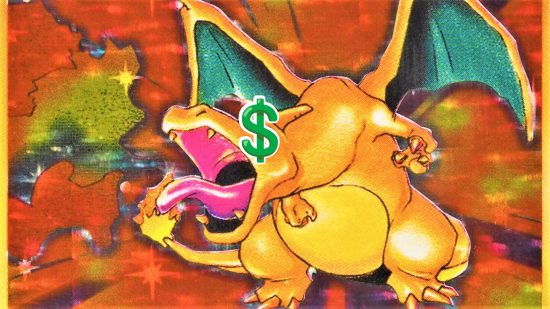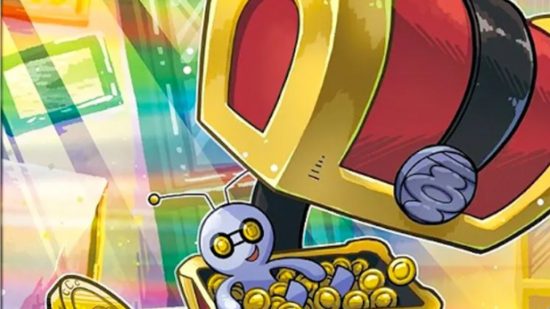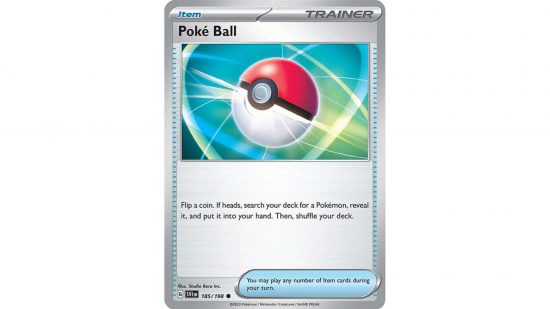So you want to sell some Pokémon cards? Whether you’re looking to offload a childhood collection, make some money by taking advantage of the secondary market’s ups and downs, or you just have a blingy Pokémon card that doesn’t strike your fancy, we’ll teach you how to safely and easily sell Pokémon cards online.
If you don’t have a LGS to support in your area, or aren’t interested in selling Pokémon cards in person, there are lots of ways to get a great price online. Whether you’ve got rare Pokémon cards worth thousands, powerful Pokémon cards with a spot in the best Pokémon decks, or nothing special, here’s how you make money from your Pokémon collection.

1. Store and organize your collection
If you’ve got Pokémon cards you plan to sell, it’s important to store them properly to ensure they don’t get damaged or become degraded. A higher quality card will always sell for more money than one with frayed edges or visible signs of weathering. Make sure you have somewhere safe to keep your cards, whether it’s boxes or binders. You may even find these board game storage methods helpful.
If you’ve got valuable Pokémon cards to sell, it’s sensible to give these extra protection by sleeving them. You’ll need to invest in some cheap plastic sleeves when it’s time to sell your cards anyway, so there’s no real downside to this.
Keeping an organized Pokémon card collection takes a lot of time and effort – as someone who’s failed at it in the past, you can trust me when I say keeping cards tidy is a lot of work. You don’t need to have things in perfect order, but you should have a good idea of what you own and what it’s worth.
2. Understand your collection’s value
When you’re selling Pokémon cards, it’s important not only to keep your valuable cards safe and in good condition, but also to understand what your collection is worth.
The more you know about Pokémon cards, the better odds you have of selling your cards at a good price. Most casual fans will know the basics. For instance, if you’re reading this you probably know about the holy grail that is the base set Charizard Pokémon card. But do you know how to spot first edition Pokémon cards that aren’t giant orange dragons? What about rare cards from other sets?
Most fans won’t have first edition cards in good condition, but these are far from the only expensive Pokémon cards worth caring about. Find out about various popular or chase cards from different Pokémon TCG expansions, and look up the value of any Holo, Secret, or Ultra rare cards in your collection. If you’re not sure which cards these are, our guide to identifying Pokémon card rarity will help you out.
You can find out your card’s prices by checking eBay’s ‘Sold Items’ to see what copies sold for recently. Or you can rely on other price checking websites.
3. Pick a storefront
We’re not going to tell you where you should sell your cards, because there are loads of options and all of them have their advocates and their detractors, their benefits and their drawbacks. Where you choose to sell your Pokémon cards will depend on personal taste.
If you want somewhere to start off, however, TCGPlayer in the US or Cardmarket in the EU tend to be very popular choices, and eBay is a decent option whichever region you’re in. Different platforms take a different cut of the profits (10% from TCGPlayer, 10-15% from eBay) and you’ll find cards are more or less likely to sell on different marketplaces.
There are some benefits to selling Pokémon cards via multiple platforms, especially if you’re buying and selling, since this gives you the best chance of finding disparities and selling a card for a higher price than you bought it for.
However, there are tradeoffs too – spreading yourself across more than one store can be time consuming and fiddly, plus this dilutes your ability to build up a good seller reputation.
3. Packaging cards to ship
When you’re selling Pokémon cards, it’s important that you ship them correctly. If your cards turn up bent, as soggy mush, or don’t arrive at all, you’re going to be hit with complaints, and customers asking for their money back.
Most of the more reputable websites will have systems in place to ensure customer satisfaction, and that may mean you don’t see a dime, so it’s important to get this right.
To ship Pokémon cards, first insert them into a cheap sleeve. You can also use a toploader on top of this for added protection. Tape this shut using easily removable tape (be careful it doesn’t touch the card itself!) then place the card between two pieces of card, to ensure it can’t be easily bent. Simple! Oh, and then stick it in an envelope.
4. Maintain a good reputation
Related to our last point, if you want to sell Pokémon cards over a prolonged period, it’s vital to maintain a good rep. Just as an Uber driver won’t pick up a pukey passenger, customers will steer clear of Pokémon card sellers if other people have reported bad experiences, and it doesn’t take much to blot your copy book.
Therefore, when selling Pokémon cards the most important quality you can have is diligence. Be careful you get all the information correct when writing your card listings, be realistic about your cards’ quality, and obviously don’t try to mislead or trick people.
A quick tip is that it can be worth building a good reputation through less important sales, before you go about selling a particularly expensive Pokémon card. If people know you’re on the up and up, then making a large purchase with you will feel less risky.
Should you grade your Pokémon cards to sell?
Getting your Pokémon cards professionally graded has plenty of pros and cons, so there’s no clear answer to whether it’s worthwhile.
In general, the answer is going to depend on how much your card is worth, and whether the value is likely to go up from a good grade. For some particularly high ticket items, grading makes all the difference. Other cards stay at pretty much the same price, whether they’re graded or not.
Of course, selling a graded card is much safer. There’s no risk of the seller claiming you’d overestimated a card’s quality if it was graded by someone who undeniably knows what they’re talking about. However, grading can be expensive, and if your card doesn’t come back with the grade you expected, you’re understandably going to be disappointed.
When should you sell Pokémon cards?
If you really want to get the most money possible from your Pokémon cards, you’ll want to keep an eye out for particular card spikes. Use a website like Price Charting to keep track of what cards are rising in price and which are falling. After that, it works like stocks: buy when cards are low, sell when cards are high. Easy peasy, right?
If you’ve got a lot of patience, it may be better to not sell your Pokémon cards right now at all. After a massive surge during lockdown, which saw the biggest Pokémon card sales in history, prices are dipping as the market course corrects.
There’s every chance it will jump back up again in some months’ or years’ time, so if you’ve the stomach for it, perhaps you should hold on for now. Hold! It worked out so well for those Gamestop guys.
For more Pokémon news, check out the newest Pokémon sets or find out how to play Pokémon cards. Or, if you’re dead sick of these cute cartoon characters, there are other – more serious – Trading Card Games you could try instead.






